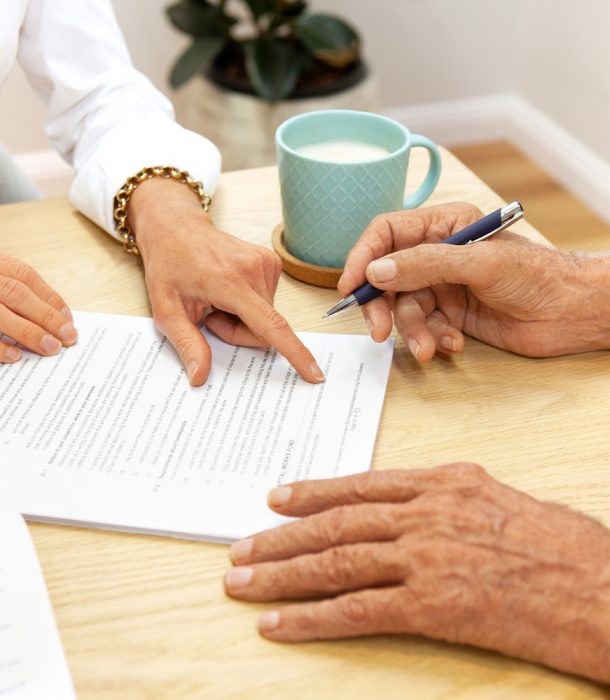What are Advance Health Directives (AHDs)?
An AHD is a very specific document, which operates as a legal tool to enable adults with capacity to give directions about their future health and personal care, communicate their values and what is important to them in life, and even appoint attorneys. Previously, such documents were very narrow and focused on an individual’s preference relating to specific medical treatment decisions. Today, AHDs encompasses much broader values and goals-based questions which assist medical professionals and family members, in ensuring the most appropriate care possible is provided.
Why have an Advance Health Directives?
AHDs can be of relevance to everyone, but there are several documented benefits of AHDs in an aged care context including:
- Reduced hospital transfers;
- Reduced levels of anxiety and depression – both by the person and their family;
- More certainty around the adult’s wishes; and
- More control for individuals in the end-of-life process.
Despite the significant benefits, the uptake of advance health directives remains surprisingly low. In fact, the number of people over the age of 65 who have an AHD in place is between 1% and 11%.
How do I revoke an Advance Health Directive?
In terms of revocation the most important consideration is capacity. The general rule is that you need the same level of capacity required to give the power as you do to revoke it.
The written notice of the revocation should be communicated. There is no rule about the method of communication, but it is suggested that trackable post with a signing requirement is a prudent approach. Another reasonable alternative is using email, with a read receipt.
An AHD will also be revoked in the following circumstances:
- If you replace your AHD – this is relevant if a person makes an AHD and then makes a later AHD. However, the ‘termination’ only applies to the extent of an inconsistency. That means that two or more AHDs could operate at the same time.
- If you pass away – Any enduring document ends on a person’s death.
- If you marry – Unless the enduring document expresses a different intention, if a person marries after an enduring document is made and that enduring document appoints someone other than the person’s partner, then it will be revoked.
- If you get divorced – If a person divorces after entering into an enduring document, then the document is revoked to the extent it gives power to the divorced person. However, it is important to note that the revocation does not occur when partners separate (the divorce must be finalised).

To give yourself peace of mind and to ensure that your health and personal care wishes are carried out, it is important to ensure you have an AHD in place that comprehensively reflects your values and preferences relating to medical and health decisions. The team at DSL Law can help ensure your AHD complies with the necessary requirements and is reflective of your wishes.



